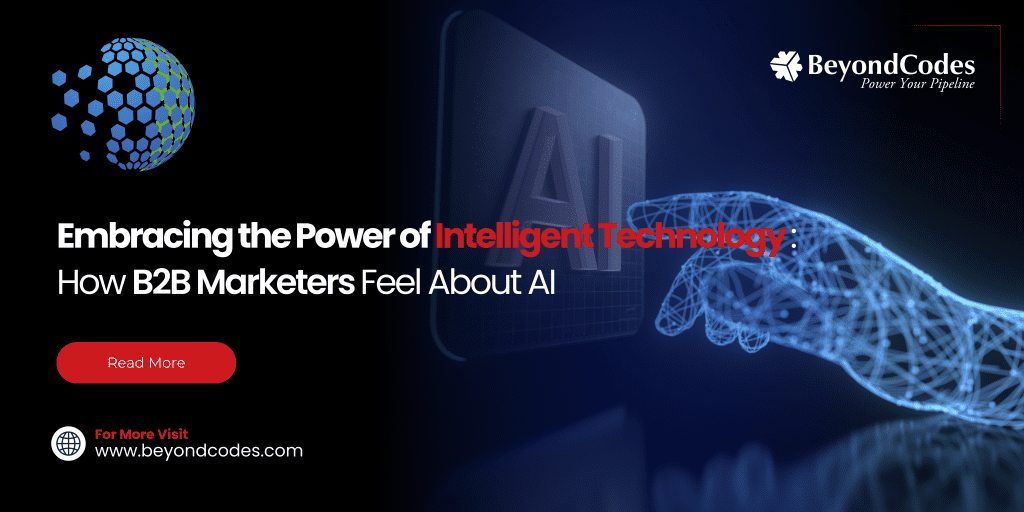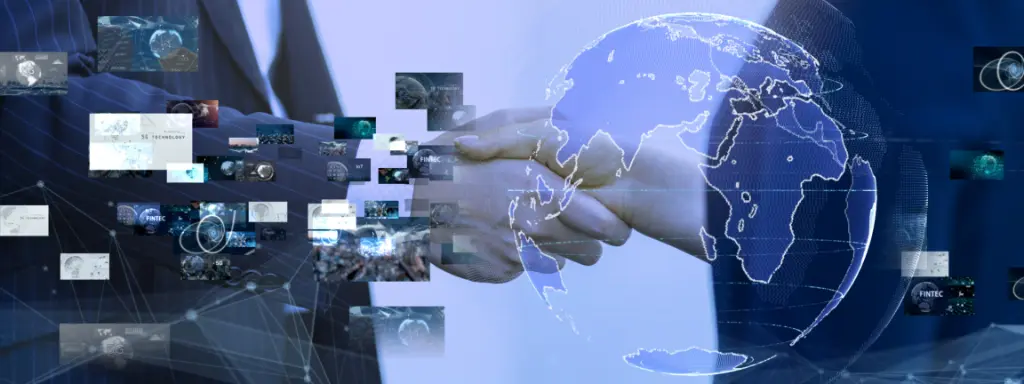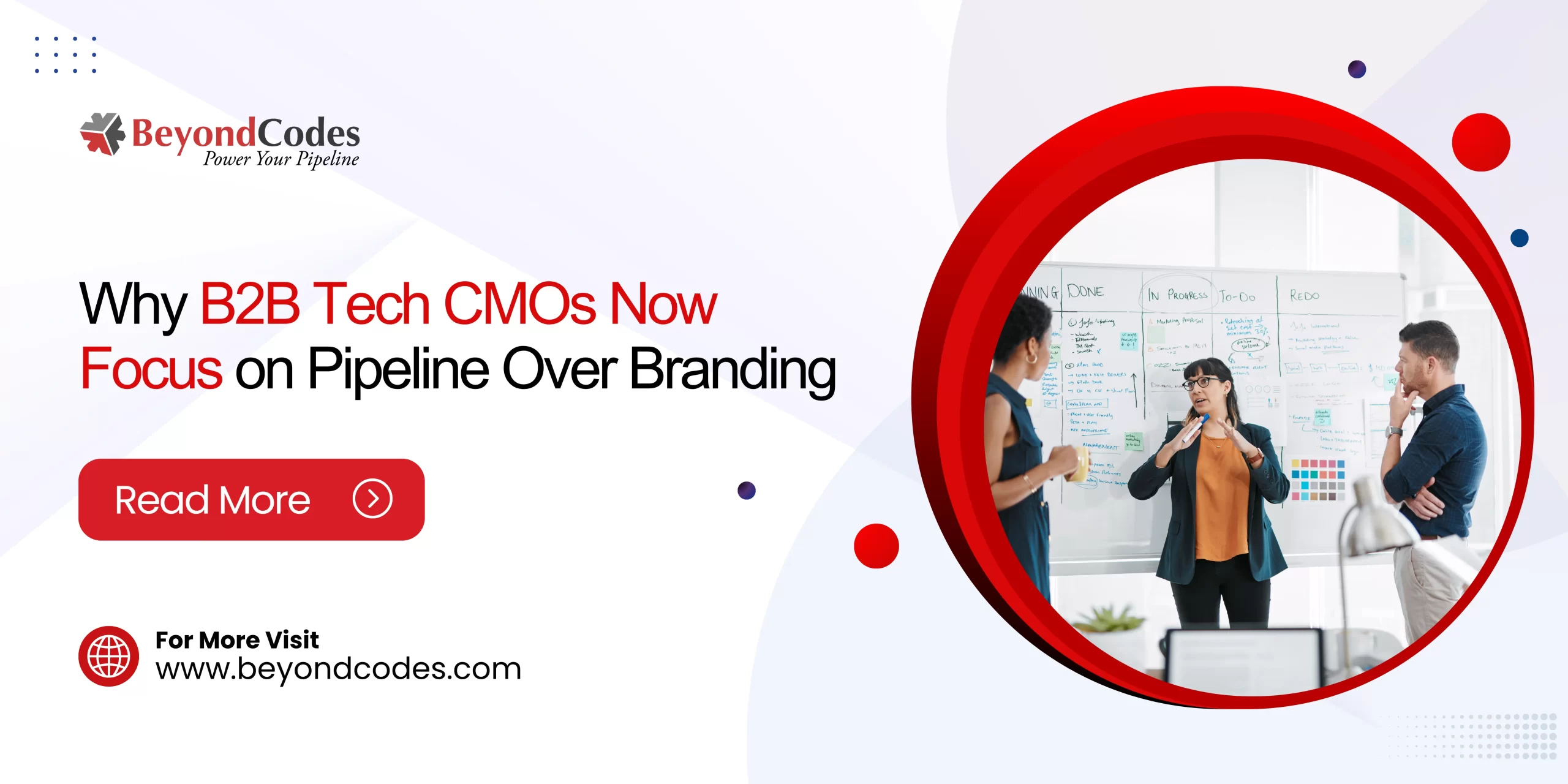One innovation that has gained significant attention is Artificial Intelligence (AI).
AI has transformed numerous industries and B2B marketing is no exception.
According to recent research conducted by Wpromote and Ascend2, the majority of B2B marketers express positive sentiments toward artificial intelligence (AI). However, the study also revealed that approximately 21% of marketers feel apprehensive about this technology.
Based on data collected from a survey conducted in April 2023, which involved 348 B2B marketers working for US businesses with 50 or more employees, the report revealed various emotions among the respondents regarding AI.
Out of the surveyed marketers, 34% expressed feelings of hopefulness, 26% reported being excited, 16% admitted feeling apprehensive, 7% expressed a sense of relief, 5% stated they were terrified, and 12% remained indifferent toward AI.
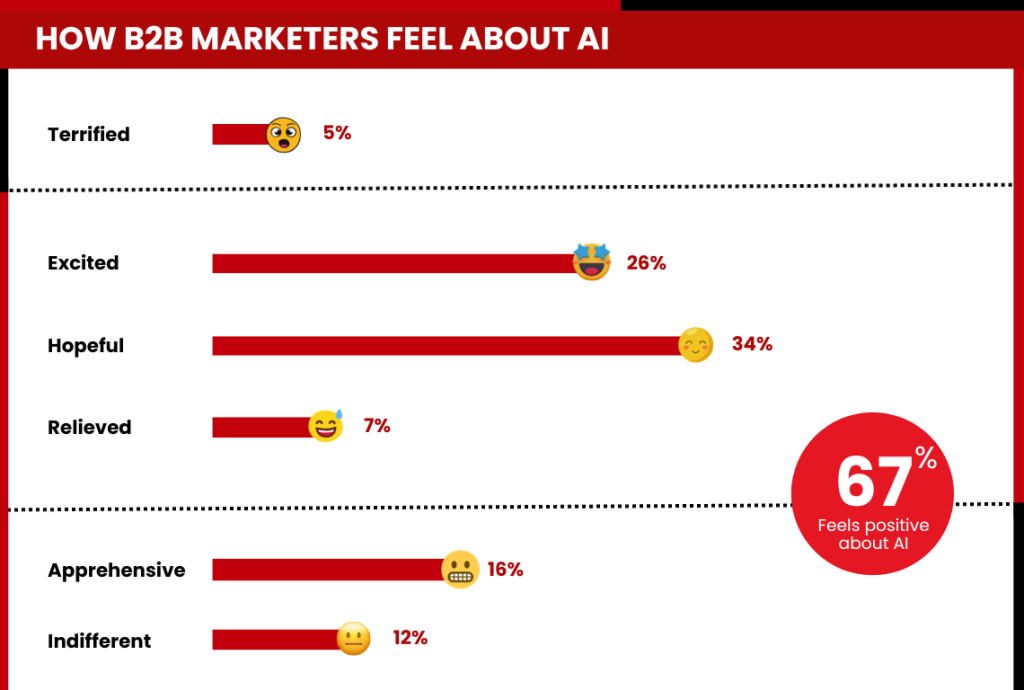
The majority of B2B marketers, accounting for 79%, express their anticipation to integrate more AI into their overall strategy and technology stack within the next year.
When considering potential investments in AI, B2B marketers demonstrate a broad range of interests over the next two years.
Among the areas that marketers would consider investing in AI:
- 46% highlight personalizing the customer experience.
- 40% express interest in utilizing AI for content generation.
- 36% focus on automating customer interactions.
- 36% consider employing AI for customer service functions.
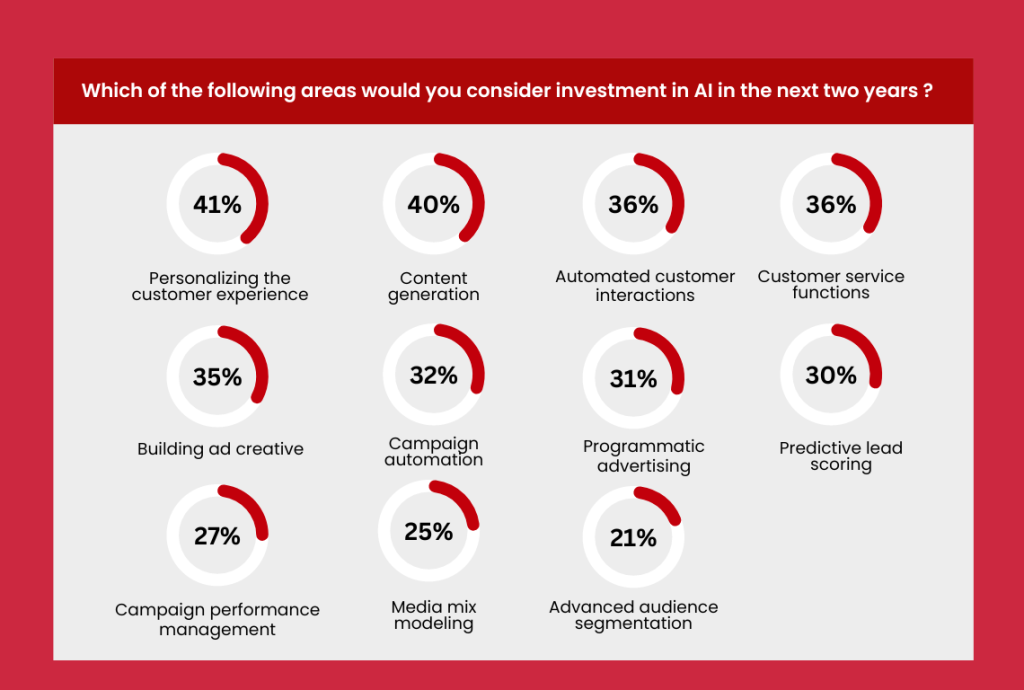
B2B marketers who indicate that their business excels in providing superior customer experience are notably more inclined to consider investing in AI for various purposes within the next two years.
Specifically, they express interest in utilizing AI to build ad creative, manage programmatic advertising, measure campaign performance, and conduct media mix modeling.
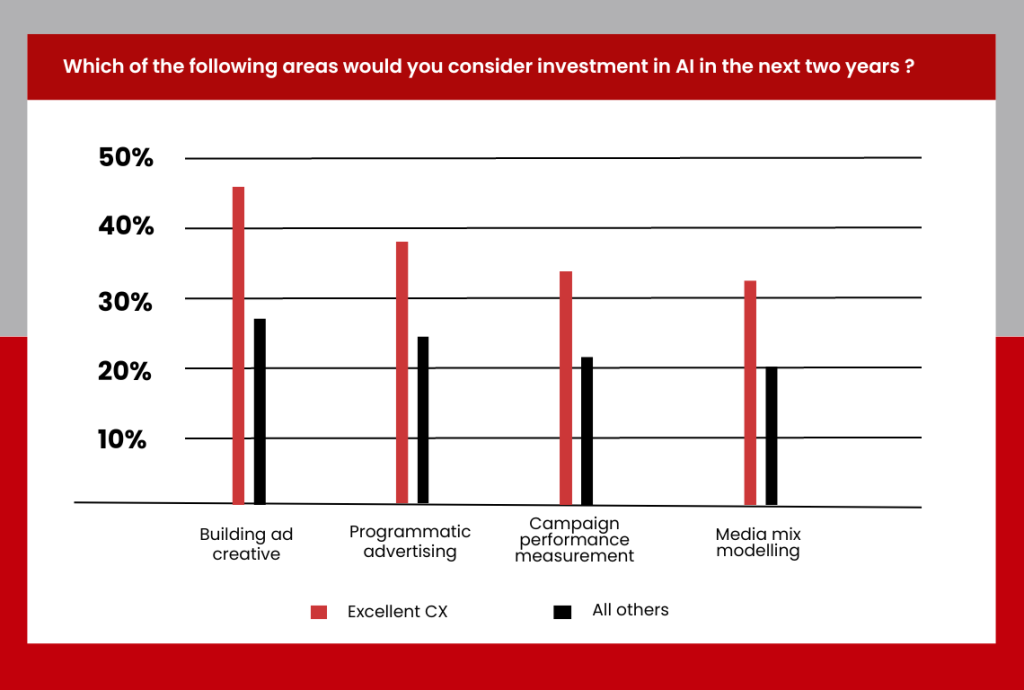
Regarding the research: The findings were derived from a survey carried out in April 2023, encompassing 348 B2B marketers employed by US companies that have a staff of 50 or more individuals.
1. The Curiosity and Excitement Surrounding AI
B2B marketers have been captivated by the possibilities that AI brings to the table. The ability to automate tasks, analyze vast amounts of data, and deliver personalized experiences to customers has sparked curiosity and excitement within the industry. AI offers marketers the opportunity to enhance efficiency, optimize campaigns, and gain valuable insights that can drive decision-making.
Aslo Read – Beyond Codes is Making Their Presence Felt in the LA B2B Lead Generation Industry
2. Improved Efficiency and Automation
One of the primary reasons B2B marketers are embracing AI is its potential to improve efficiency and automate repetitive tasks. With AI-powered tools, marketers can automate processes such as lead scoring, email campaigns, content creation, and social media scheduling. This automation allows marketers to focus their time and energy on strategic initiatives, creativity, and building meaningful relationships with prospects and customers.
3. Enhanced Data Analysis and Insights
Data is the backbone of any successful marketing campaign. B2B marketers understand the importance of gathering, analyzing, and interpreting data to make informed decisions. AI has revolutionized data analysis by providing marketers with the ability to process vast amounts of information quickly and accurately. AI algorithms can identify patterns, trends, and correlations humans might miss, enabling marketers to uncover actionable insights and make data-driven decisions.
4. Personalization at Scale
Personalization has become a critical aspect of marketing in recent years. B2B marketers strive to deliver tailored experiences that resonate with their target audience. AI plays a vital role in achieving this level of personalization at scale. By analyzing user behavior, AI algorithms can understand individual preferences and deliver personalized content recommendations, product suggestions, and targeted advertisements. This level of personalization helps B2B marketers create more meaningful engagements, build trust, and drive conversions.
5. Improved Customer Experience
Customer experience is a top priority for B2B marketers. AI has proven to be a valuable tool in enhancing the customer journey. Through AI-powered chatbots and virtual assistants, marketers can provide instant and personalized responses to customer inquiries, improving customer satisfaction and reducing response times. AI can also analyze customer interactions across multiple touchpoints to identify pain points, preferences, and opportunities for improvement, enabling marketers to optimize the customer experience and nurture long-term relationships.
6. Challenges and Concerns
While B2B marketers are enthusiastic about the potential of AI, there are also concerns and challenges associated with its adoption. One common concern is the fear of job displacement. As AI automates specific tasks, there needs to be more clarity about the impact on job roles and the need for upskilling to adapt to the evolving marketing landscape. However, many experts believe that AI will augment human capabilities rather than replace them, allowing marketers to focus on high-value activities that require creativity, critical thinking, and strategy.
Another challenge is the ethical use of AI. B2B marketers must ensure that AI algorithms are unbiased, transparent, and compliant with data privacy regulations. The responsible use of AI is crucial to maintaining customer trust and avoiding potential reputational damage.
Conclusion
B2B marketers are embracing AI as a powerful tool that enhances efficiency, improves data analysis, enables personalization at scale, and enhances the customer experience.
AI empowers marketers to automate tasks, uncover actionable insights, and deliver personalized content, leading to better engagement and increased conversions. While challenges and concerns exist, the overall sentiment among B2B marketers is one of curiosity and excitement.
By harnessing the power of AI, B2B marketers can stay ahead of the competition, drive growth, and build lasting relationships with their customers in this ever-evolving digital landscape.
The List of Articles that You Can Read:
- Social Media Engagement Strategies for B2B Lead Generation
- How to Leverage Hyper-Personalization in B2B Lead Generation for Different Buyer Personas
- The B2B Lead Generation Funnel: Learn to Leverage Each Stage of The Sales Funnel
- Understanding the Prospects’ Firmographics, Demographics, and Psychographics in B2B Lead Generation

